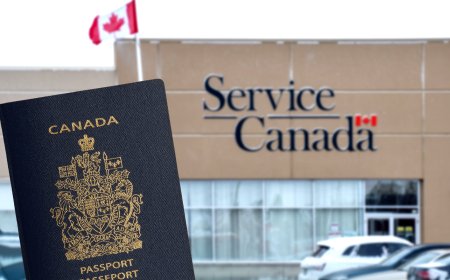Which Jobs in Canada Received the Most LMIAs? | Canada Immigration Updates
Gaining Canadian work experience is a crucial part of the immigration journey for many newcomers, helping increase their eligibility for immigration while also improving their skills to reflect the labour market.

The ability to work in Canada is usually granted through a work permit, which allows holders to live and work in the country with temporary resident status. Newcomers who are looking to work in Canada, but do not have access to another kind of work permit may find value in pursuing a Labour Market Impact Assessment (LMIA) supported work permit.
An LMIA is the Canadian government’s assessment of the impact of hiring a foreign worker on the Canadian labour market. To be eligible to support a work permit application, the LMIA must return a positive or neutral result—with a negative result making the position ineligible for this kind of work permit. The use of an LMIA also helps determine whether a Canadian citizen or permanent resident is available to fill a job position.
Positions that receive LMIAs are often highly in demand within Canada. Below is CIC News's breakdown of which jobs received the most LMIAs in 2023, based on data from the Canadian government.
What Were the Top Ten Jobs That Received LMIAs?
According to Canada’s open data portal, in 2023 the following jobs received the most LMIAs throughout the year:
|
Job Title |
2016 NOC Code |
LMIAs Issued in 2023 |
|
General Farm Workers |
8431 |
8289 |
|
Cooks |
6322 |
5187 |
|
Food service supervisors |
6311 |
3739 |
|
Food counter attendants, kitchen helpers and related support occupations |
6711 |
2576 |
|
Administrative assistants |
1241 |
1619 |
|
Retail sales supervisors |
6211 |
1358 |
|
Information systems analysts and consultants |
2171 |
1168 |
|
Computer programmers and interactive media developers |
2174 |
1133 |
|
Transport truck drivers |
7511 |
1131 |
|
Construction trades helpers and labourers |
7611 |
994 |
|
Administrative officers |
1221 |
990 |
The employment codes and job titles given above correspond to National Occupation Classification (NOC) 2016 codes. Canada uses the NOC system to categorize and classify professions within the Canadian economy. Interestingly, many of the 2016 NOC Codes were expanded in 2021, yielding more specific jobs that were previously grouped together.
For example, the 2016 NOC Code for General farm workers (8431) was expanded in 2021 to:
- 84120, Specialized livestock workers and farm machinery operators;
- 85100, Livestock labourers; and
- 85101, Harvesting labourers.
Within the top 100 jobs that received LMIAs, most positions were within administrative, construction, farming, technology and technology management, transport, logistics, and food-service sectors of the economy.
In total, the Canadian government issued more than 60,000 LMIAs to support the hiring of foreign workers in 2023. Applicants in these positions also received their work permits under different streams of the Temporary Foreign Worker Program (TFWP). The TFWP is the main immigration program that issues LMIA-supported work permits. The TFWP also contains multiple streams within it, with differing eligibility for candidates depending on the kind of work, job type, industry, responsibilities, and wages that their job entails.
Of the top 10 jobs that received an LMIA last year, four were from the low-wage stream of the TFWP, four were from the high-wage stream, one was from the Global Talent Stream (GTS), and one—which received the highest number of LMIAs—was from the Primary Agriculture stream.
How Can Newcomers Use This Information?
In cases where newcomers require an LMIA but are flexible in their work choice, they may want to target occupations that have received a high number of LMIAs in the past.
Newcomers should remember that their employers are responsible for applying for the LMIA and paying all associated fees. Employers must also follow the outlined steps and comply with TFWP standards when applying for an LMIA—such as advertising the job position publicly for a certain amount of time.
In March 2024, Canada announced a number of changes to the TFWP and LMIAs, including changes to validity periods and workforce quotas.
What's Your Reaction?
 Like
0
Like
0
 Dislike
0
Dislike
0
 Love
0
Love
0
 Funny
0
Funny
0
 Angry
0
Angry
0
 Sad
0
Sad
0
 Wow
0
Wow
0








































































